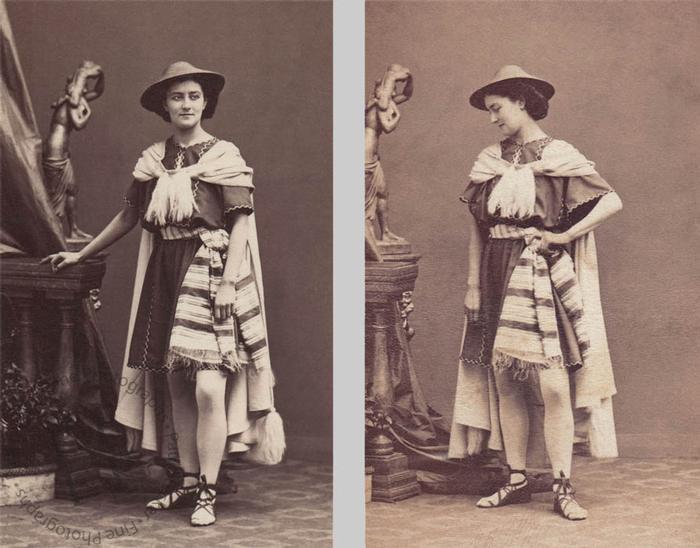Bernadine Hamakers
(1836-1912)
Born the daughter of an inn-keeper at Louvain in Belgium on 12 June 1836, Bernadine Hamakers (sometimes Hamaekers) made her first concert appearance in 1855. While studying in Paris with Gilbert Duprez, she came to the attention of the duc de Morny, the Emperor’s illegitimate half-brother, who used his influence to get her hired by the Paris Opéra where she made her debut on 12 September 1856 as Mathilde in Rossini's Guillaume Tell. Through Morny she was also engaged as a singer for the chapel at the Tuileries Palace and was a soloist at the Prince Imperial’s baptismal mass.
She was known for her trills, said to equal those of the great Patti, and for her stage presence. She appeared in a number of travesti roles, which allowed her to show off her legs. Amongst these were Urbain, the Queen's page in Les Huguenots and the young student Bénoni in Gounod's La reine de Saba, a role she created at the Salle Le Peletier on 28 February 1862.
She attracted a string of lovers who provided her with considerable wealth. Her most prominent protector was Napoléon III, who gave her an emerald and diamond necklace. At the height of her career, she had a house in Paris and a château at Fontainebleau, but much of her fortune was dissipated by one of last Parisian lovers, who turned out to be an inveterate gambler.
She retired from the stage in 1884. For a while she gave singing lessons but became increasingly destitute in her old age. In October 1912, at the age of 76, she attempted to commit suicide by throwing herself out of the window of her apartment in Brussels. She survived the fall and was taken to hospital, where she was placed under the care of a psychiatrist, but on 24 October she smashed a glass that had been left in her room and used it to slit her own throat.
She is seen her as Bénoni in Gounod's La reine de Saba.

